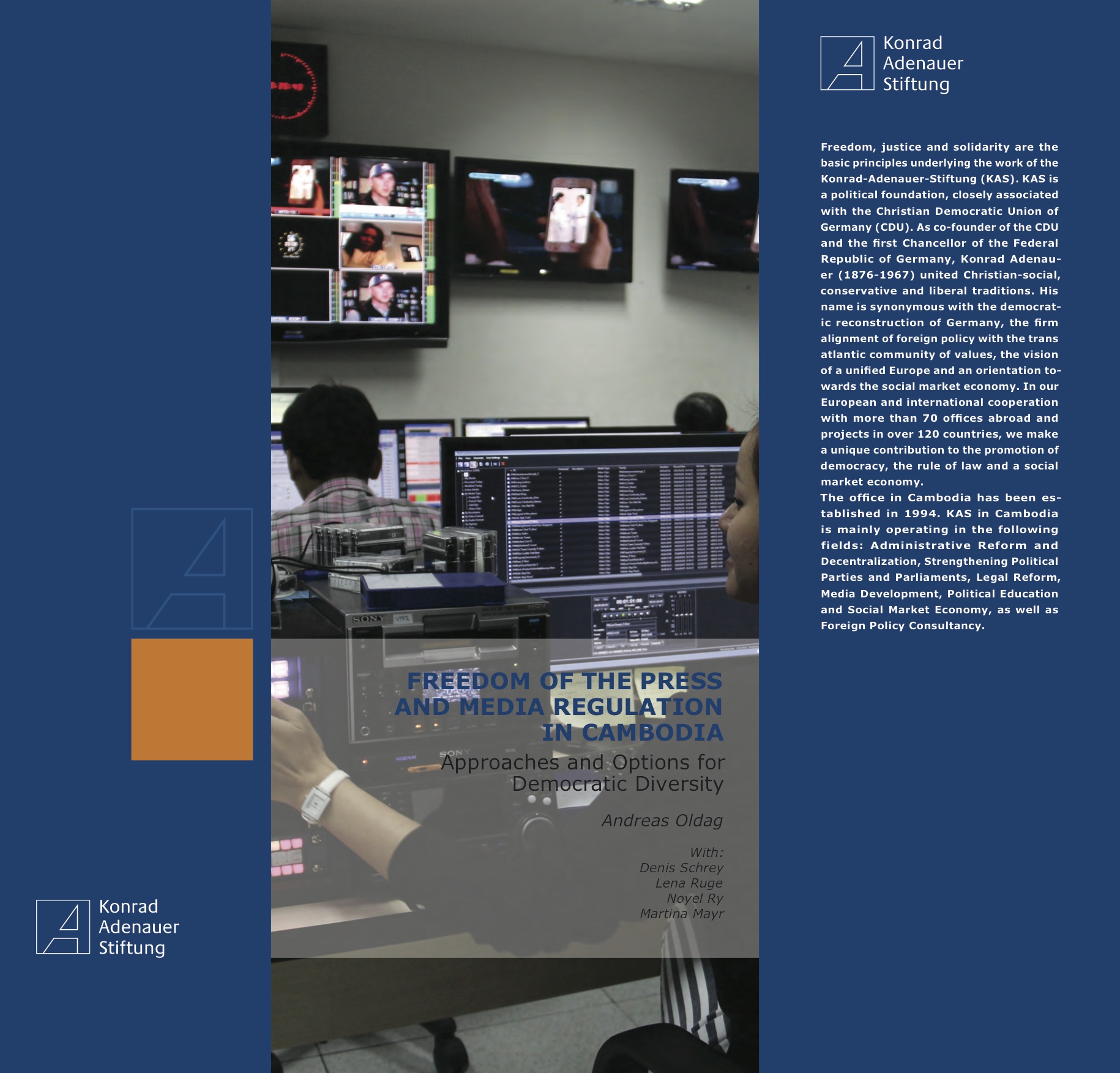
Freedom of the Press and Media Regulation in Cambodia
Publication Year: 2015 / Sources: Konrad-Adenauer-Stiftung (KAS)Democratic states and free and independent media are closely interlinked and interacting. The diversity and quality of the media is essential for constituting a broadly, diversely and well informed public. To ensure that media can properly fulfill its information and education function it is of utmost importance to develop and implement democratic regulations that assure program diversity and objectivity to strengthen free formation of opinions in a pluralistic society. Consequently the aim of this study is to expedite the development and acceptance of a transparent and democratic media regulation in Cambodia. Moreover, the study offers practical ideas and options for Cambodian lawmakers, journalists and other media professionals on how to create and develop such a framework.

Freedom of Information in Cambodia: The Illusion of Democracy
Publication Year: 2010 / Sources: Cambodian League for the Promotion and Defense of Human Rights (LICADHO)This report is a collection of stories about the current state of freedom of expression in Cambodia. The people in these stories hail from every corner of Cambodia, and come from all walks of life – they are politicians, NGO workers, academics, journalists, community representatives, and ordinary citizens. What they have in common is that governmental authorities have thwarted them in their attempts to exercise expressive freedoms – their rights to organize, assemble, move, speak, petition and influence government decisions.
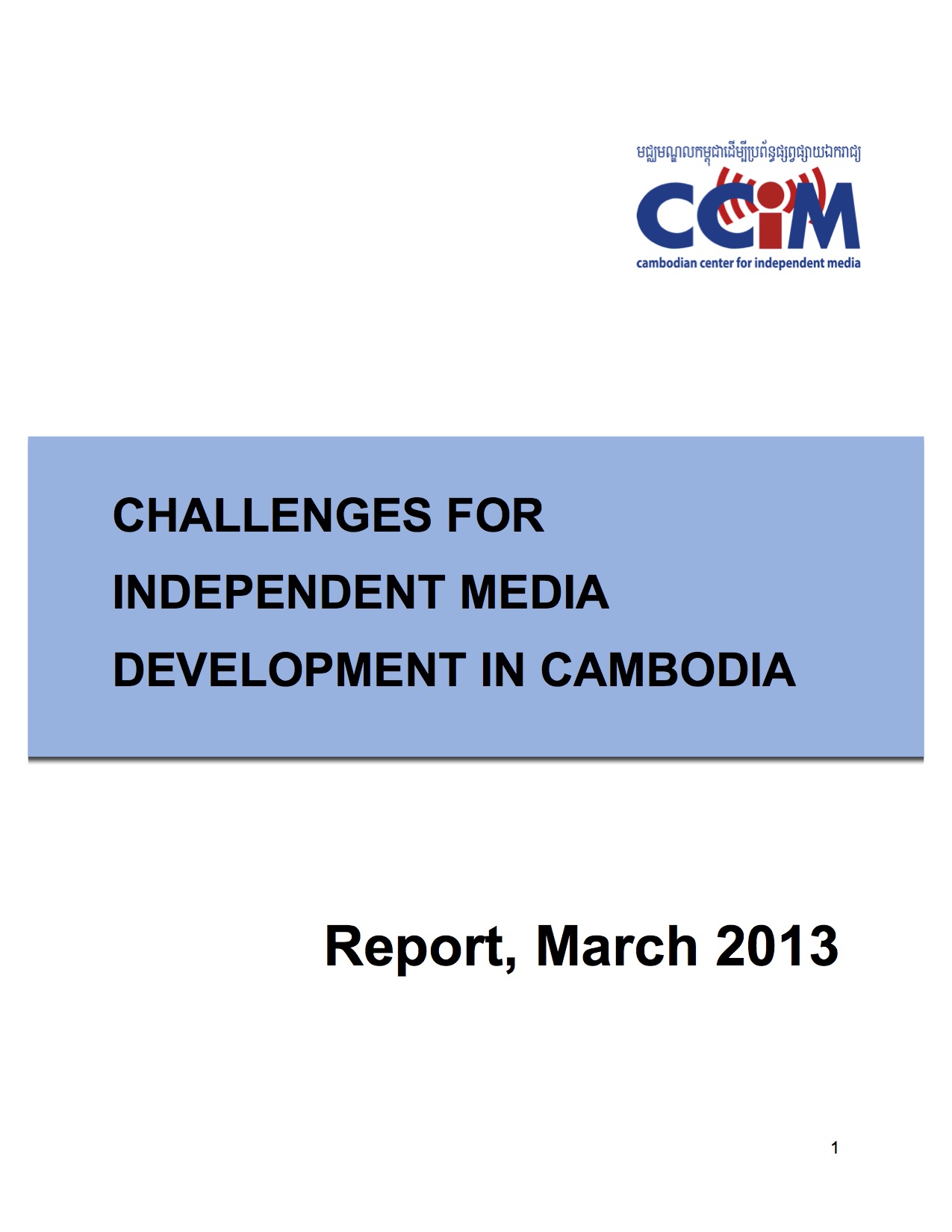
Freedom of Information: Advancing Research & Actions
Publication Year: 2012 / Sources: Cambodian Center for Independent Media (CCIM)This report provides information gleaned from a research study commissioned by the Cambodia Center for Independent Media (CCIM). The purpose of the study was to measure the Cambodian public’s opinions on the Access to Information Draft Policy and obtain feedback from key stakeholders on public’s opinions. The data were collected using qualitative and quantitative methods including interviews with 30 key informants, six focus group discussions, and a quantitative survey (with a sample size of 1522). The study was conducted between October 2011 and January 2012.
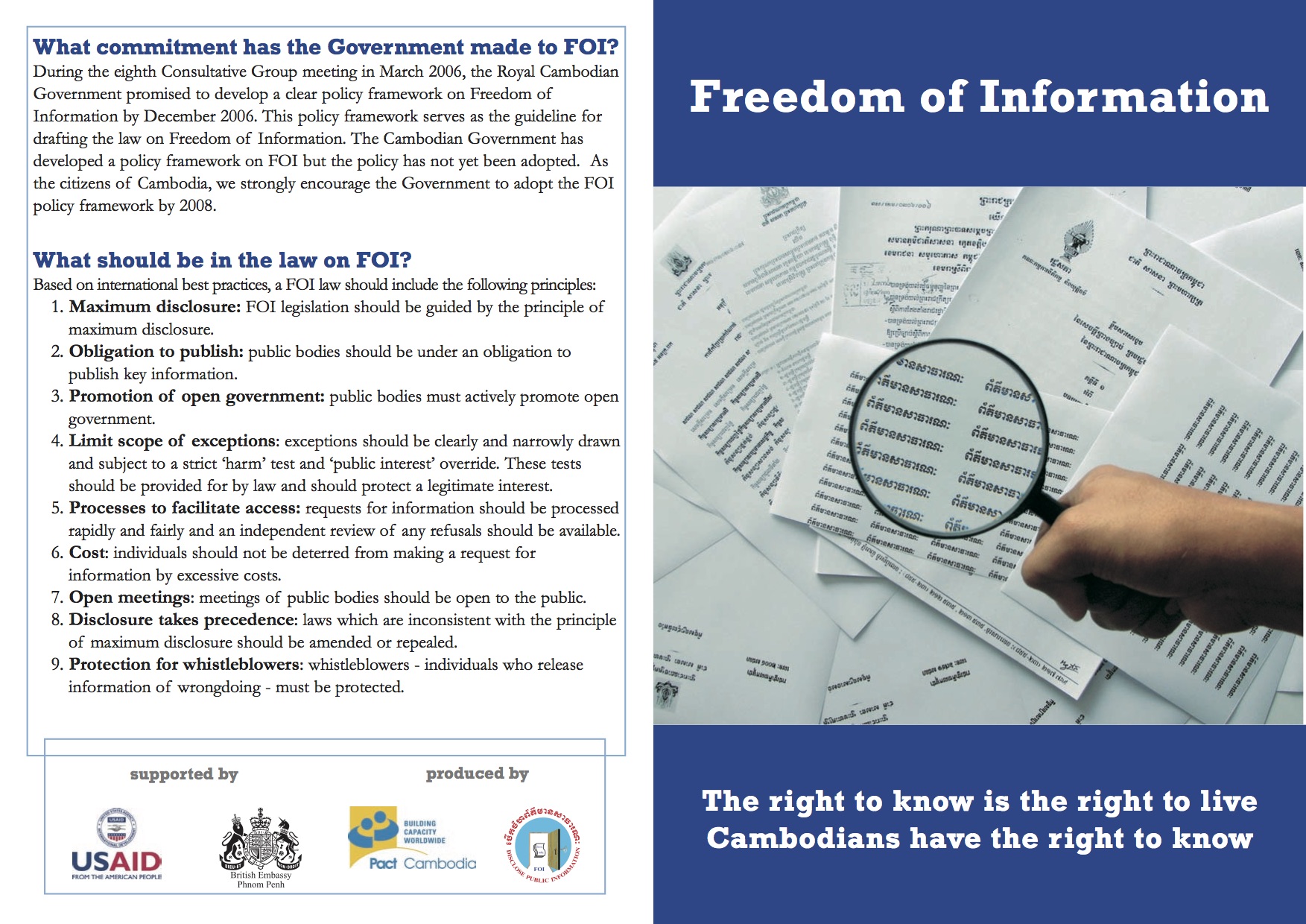
Freedom of Information Brochure
Publication Year: - / Sources: Pact CambodiaDuring the eighth Consultative Group meeting in March 2006, the Royal Cambodian Government promised to develop a clear policy framework on Freedom of Information by December 2006. This policy framework serves as the guideline for drafting the law on Freedom of Information. The Cambodian Government has developed a policy framework on FOI but the policy has not yet been adopted. As the citizens of Cambodia, we strongly encourage the Government to adopt the FOI policy framework by 2008.

Challenges for Independent Media Development in Cambodia
Publication Year: 2013 / Sources: Cambodian Center for Independent Media (CCIM)This report provides a detailed summary of the initiatives which were carried out as part of [CCIM’s Enhancing Independent Media in Cambodia project], as well as an overview of the outcomes of the project as a whole, the challenges that CCIM faces moving forward and the plans it holds for the future.
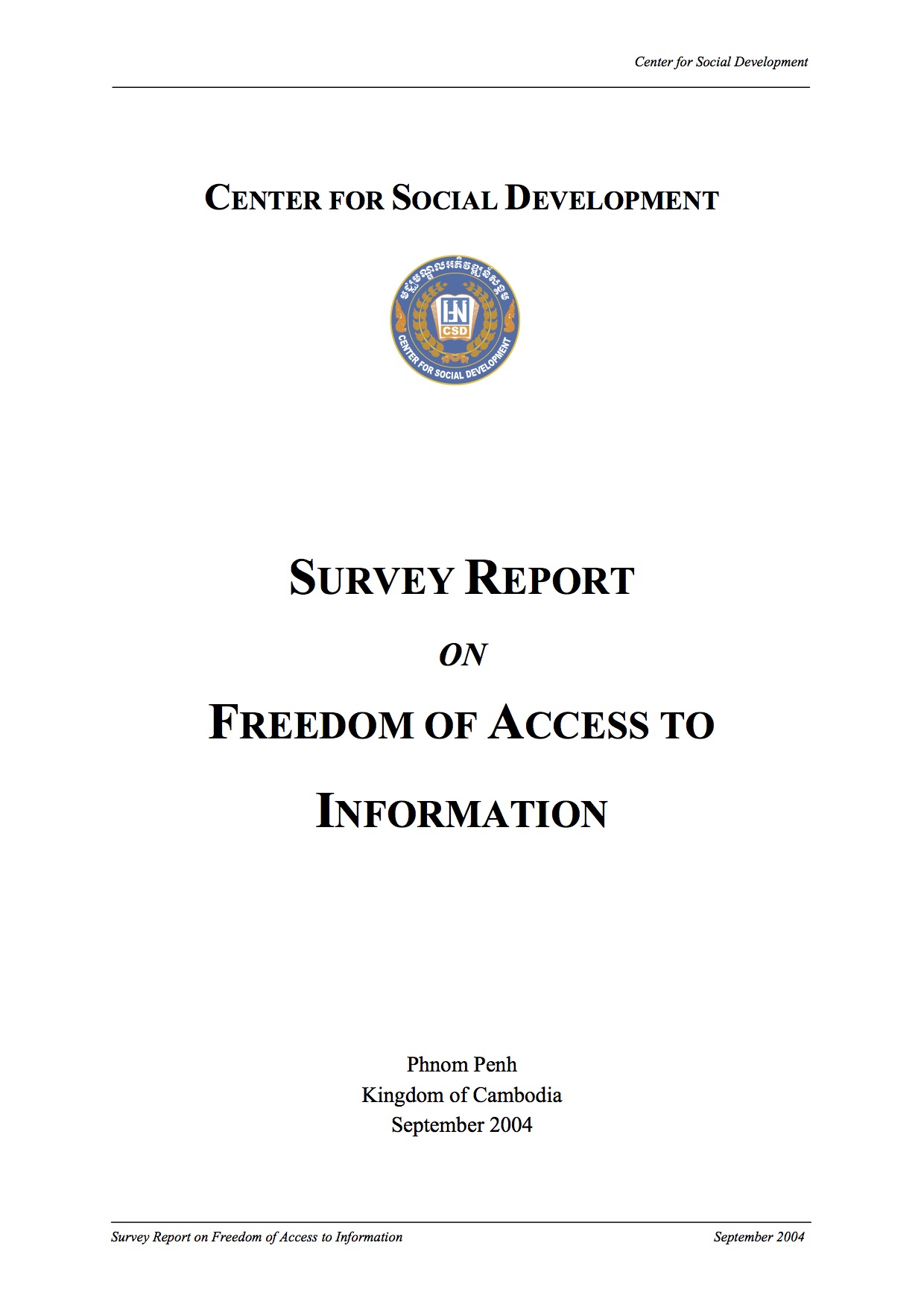
Survey Report on Freedom of Access to Information
Publication Year: 2004 / Sources: The Center for Social Development (CSD)The aim of this study was to show, in the absence of a Freedom to Information Act, the difficulties to access information from courts and public bodies, and where access is allowed the arbitrary procedures involved. From January to May 2004, the study was conducted in 4 provinces and 2 municipalities, namely: Battambang, Kandal, Kampong Cham, Phnom Penh, Sihanoukville, and Takeo. It obtained a total of 322 respondents represented by court officers, lawyers, litigants, media and persons from the private sector and NGOs.
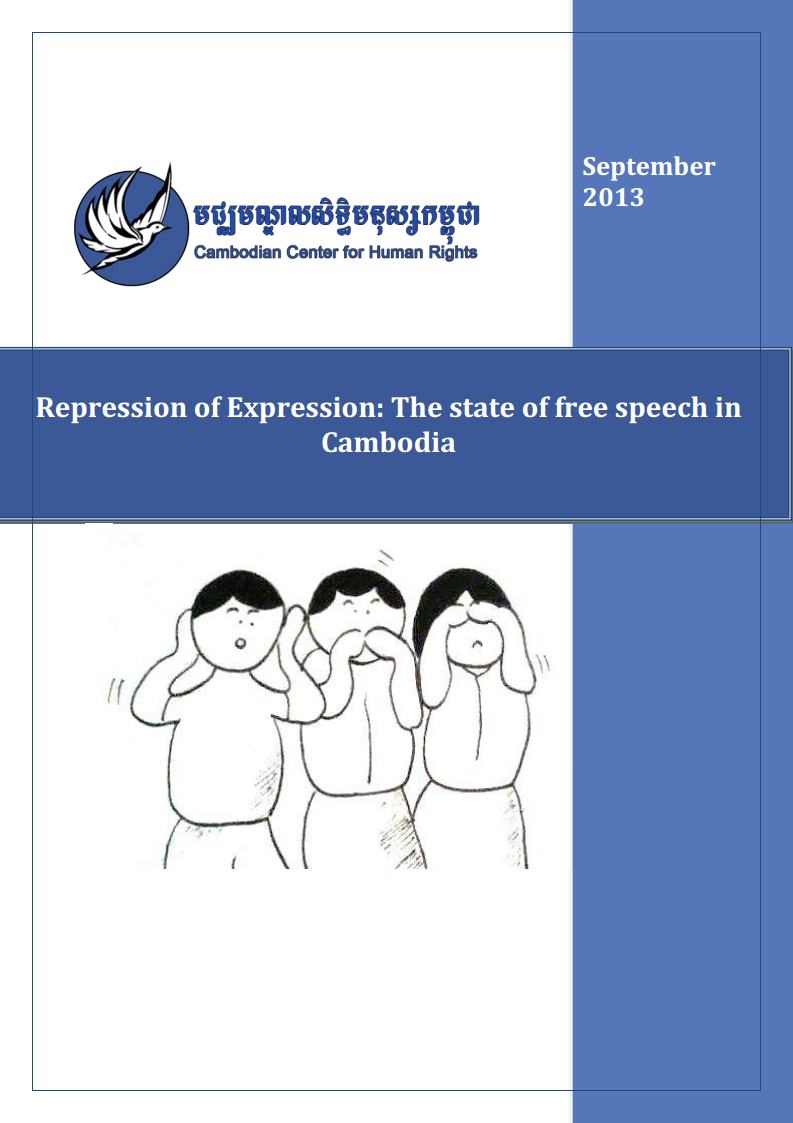
Repression of Expression: The State of Free Speech in Cambodia
Publication Year: 2013 / Sources: Cambodian Center for Human Rights (CCHR)Aware of the importance of freedom of expression to Cambodia’s fledgling democracy and its importance to the ongoing social, economic and political development of the nation, CCHR has compiled this Report in order to provide an overview of the freedom of expression situation as it developed in Cambodia throughout 2012 and in the first half of 2013. The Report will provide concrete recommendations for the improvement of the situation of free expression in Cambodia and will be used as an advocacy tool to engage with the Cambodian people, national and international organizations, donors, embassies, and of course, with the newly elected RGC.
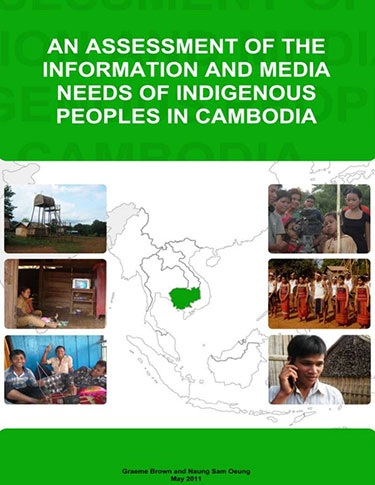
An Assessment of the Information and Media Needs of Indigenous Peoples in Cambodia
Publication Year: 2011 / Sources: Building Community Voices (BCV)This report looks at the situation with regard to information and media services for Cambodia’s indigenous peoples. It examines whether existing services meet the needs of indigenous peoples, allowing them to be active participants in governance of their local areas and of the nation. Indigenous peoples in 7 provinces of the 15 provinces with indigenous peoples were consulted through a series of consultation forums.
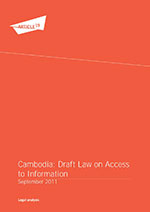
Cambodia: Draft Law on Access to Information
Publication Year: 2011 / Sources: Article 19This Memorandum examines the Draft Law on Access to Information (the “Draft Law”) that was submitted by the opposition Sam Rainsy Party, to the National Assembly on 23 December 2010.1 The purpose of this Memorandum is to examine this Draft Law from an international and comparative law perspective in order to assess whether the Draft Law is a progressive piece of legislation that will enhance free flow of information and democratic governance in Cambodia. In doing so, the Memorandum draws upon international law, standards as well as best practices of other states on RTI.
